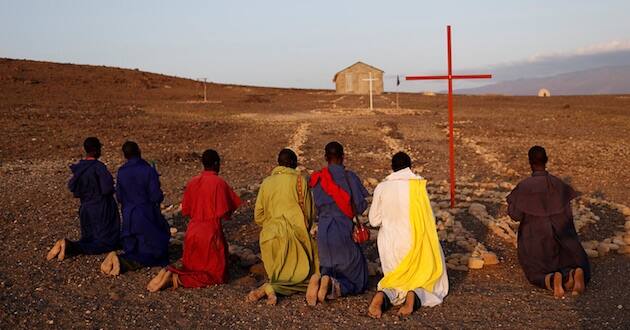Study: Christianity grows fastest without governmental support

As governmental support for Christianity increases, the number of Christians declines significantly, according to a new study. The research was published this month in the journal Sociology of Religion.
This relationship holds even when accounting for other factors that might be driving Christian growth rates, such as overall demographic trends. While some see growth potential in relation to the decreasing practice of other faiths, Christianity often is the strongest in countries where it has to compete with other faith traditions on an equal playing field.
The study found that as a country’s commitment to pluralism rises, so too does its number of Christian adherents. Seven of the 10 countries with the fastest-growing Christian populations offer little or no official support for Christianity. Paradoxically, Christianity does best when it has to fend for itself.
The strongest increase of Christianity over the past century has been in Asia, where the faith has grown at twice the rate of the population. In contrast to Europe, Christianity in Asian countries has not been in a position to receive preferential treatment from the state, and this reality has resulted in stunning Christian growth rates. The Christian faith actually has benefited by not being institutionally attached to the state, feeding its growth and vitality.
READ: Has Europe left Christianity for paganism?
Africa is the other world region where Christianity has seen breathtaking growth, particularly in recent decades. Today, there are nearly 700 million Christians in Africa, making it the world’s most Christian continent in terms of population. Indeed, the 10 countries with the fastest-growing Christian populations in the world from 2010 to 2020 are all located in sub-Saharan Africa.
“Our research suggests the best way for Christian communities to recover their gospel witness is to reject the quest for political privilege as inconsistent with the teachings of Jesus,” the study concluded. “In doing so, they would show that they take seriously Christ’s promise that no force will be able to prevail against his church. And rejecting privilege will make believers more reliant on the Holy Spirit to open hearts to the gospel message.”
In reporting on the news, Christianity Today writes: “Perhaps the best explanation for this is derived from The Wealth of Nations, the most important work of Adam Smith. The famous economist argued that just as a market economy spurs competition, innovation, and vigor among firms by forcing them to compete for market share, an unregulated religious marketplace would have the same effect on institutions of faith.”
But in many countries such as Iran and China, where Christianity is increasing, persecution is on the rise. Many point to first-century Christianity which, in the span of 300 years overtook the Roman empire – even in the face of intense persecution and no governmental support at all.
–Dwight Widaman | Metro Voice






